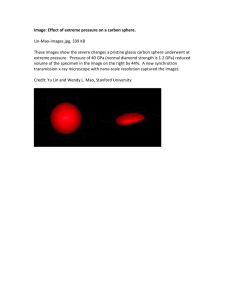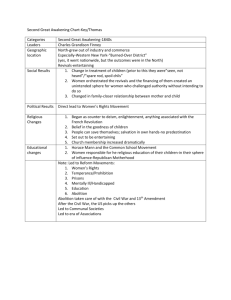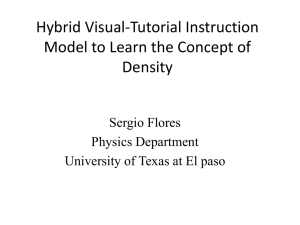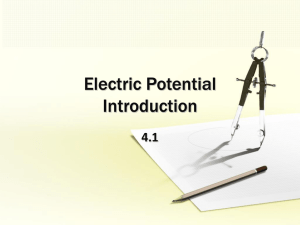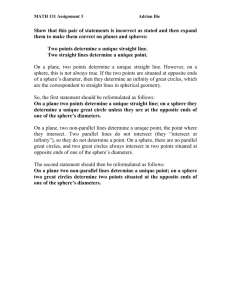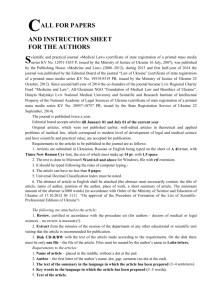SELF-RELIANT work MEDFACULTY
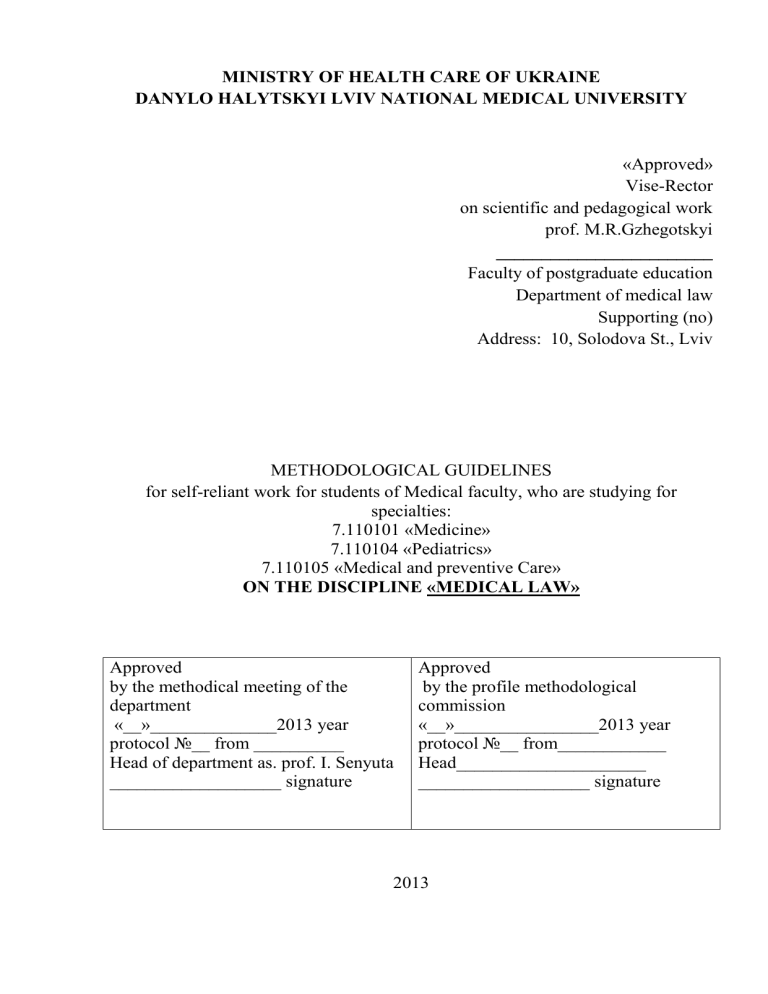
MINISTRY OF HEALTH CARE OF UKRAINE
DANYLO HALYTSKYI LVIV NATIONAL MEDICAL UNIVERSITY
«Approved»
Vise-Rector on scientific and pedagogical work prof. M.R.Gzhegotskyi
________________________
Faculty of postgraduate education
Department of medical law
Supporting (no)
Address: 10, Solodova St., Lviv
METHODOLOGICAL GUIDELINES for self-reliant work for students of Medical faculty, who are studying for specialties:
7.110101 «Medicine»
7.110104 «Pediatrics»
7.110105 «Medical and preventive Care»
ON THE DISCIPLINE «MEDICAL LAW»
Approved by the methodical meeting of the department
Approved
by the profile methodological commission protocol №__ from __________
Head of department as. prof. I. Senyuta
___________________ signature protocol №__ from____________
Head_____________________
___________________ signature
2013
Self-reliant work of students and its control
№
Theme
1. Preparation for practical classes
–
Hours Type of control theoretical preparation and training practical skills
9 Current control during practical classes
2 Self study of topics which are not included to the auditoria studies plan
The concept, nature, functions and social 2 purpose of the state. State regulation of health Test and medical activities as a function of the state
Legal principles of health insurance 1
Personal non-property rights, which provide for existence of a natural person
Legal regulation of medical examination
2
1
Total 15
The topicality of the issues that are studied within the academic discipline, its role and importance for the would be medical professional, great amount of the issues, which are to be studied for a complex preparation of a specialist require that students themselves study a number of the topics out of the practical classes and lectures.
A student should learn the questions that are provided in the plan of the class, check the level of knowledge by providing answers to the questions for self-control using a list a recommended literature and legal acts.
Topic 1. The Сoncept, Nature, Functions and Social Purpose of the State.
State Regulation of Health and Medical Activities as a Function of the State
Objective: learning the basics of the theory of law. Studying and analysis of the notions “state”, “state functions”, “state mechanism” as well as the notion and peculiarities of the state regulation of the health care and medical activity.
A student should know:
A list of basic legal acts on the topic;
-
-
-
International legal standards in the sphere of health care;
Basics of the theory of law, in particular a form and a mechanism of a state;
Forms and methods of state regulations in the sphere of health care.
A student should be able to:
Analyze current laws in the sphere of health care;
Characterize international legal acts in the sphere of health care;
Create a necessary definitions apparatus;
Characterize peculiarities of the state;
Define the key elements of a state regulation in the sphere of health care.
Plan of the class
1.
The notions and peculiarities of a state. a) Form of rule, state composition, state regime. b) Mechanism of a state: notion and composition. c) Functions and social designation of a state.
2.
State regulation of the health care and medical activity as a state function.
Questions for self-control
1.
2.
Name basic theories of a state origin.
Name peculiarities of a state.
3.
4.
Name types of a state basing on the form of a state rule.
Provide definitions of the terms “state apparatus”, “state body”, “state institution”.
5.
6.
Name basic modern concepts of appearance of law.
Name the types of the sources of law.
7.
What methods of legal regulation do you know? What method of legal regulation is peculiar to civil law, criminal law and medical law,
8.
9.
Name the peculiarities of a method of legal regulation.
Define the term “legal norm”.
10.
What types of legal norms do you know?
Recommended literature
1.
Byrne I., Ezer T. Cohen J. Overall. J, Senyuta I. Human Rights in Patient
Care: A Practitioner Guide/ Under scientific editing of Senyuta I. – Lviv.
LOBF Publisher’s “Medicine and Law, 2012 – 497 pages.
2.
Health and Human Rights: A Resource http://www.equalpartners.info/Introduction/intro_TOC.html
.
3.
Origins of common law.
Guide
Link
4.
http://moglen.law.columbia.edu/ELH/baker/Ch2.pdf
The Common Law and Civil Traditions. Link http://www.law.berkeley.edu/library/robbins/pdf/CommonLawCivilLawTra ditions.pdf
5.
General Theory of Law and State by Hans Kelsen. Link http://vk.com/doc118663853_202744499?hash=b1bc59b6e1b536fad0&dl=4
1db96006a68378e89
6.
Thomas Hobbes and the Modern Theory of Natural Law. Frederick A.
Olafson. Link http://muse.jhu.edu/login?auth=0&type=summary&url=/journals/journal_of
_the_history_of_philosophy/v004/4.1olafson.pdf
7.
Hechter, M. and Horne, C. (2003) Theories of Social Order: A Reader.
Stanford University Press
8.
Moore, S.F. (2005) Law and Anthropology: A Reader, Blackwell Publisher.
Topic 2. Legal Principles of Health Insurance
Objective: learning the basic provisions regulating insurance in the sphere of health care. Getting familiar with the laws which regulate the insurance relations in the sphere of health care. Analysis of and learning the types, forms and objectives of medical insurance in Ukraine and your country.
A student should know:
A list of key legal acts on the topic;
International legal standards in the sphere of health care;
Notion, peculiarities and types of insurance;
Challenges and perspectives of compulsory insurance introduction.
A student should be able to:
Analyze current laws on insurance in the sphere of health care;
Characterize international legal acts in the sphere of health care;
Create necessary definitions and categories apparatus;
Figure out the peculiarities of other types of insurance in the sphere of health care (for example insurance of professional responsibility of medical staff);
Analyze the challenges of compulsory insurance introduction.
Plan of the class
1.
General provisions on insurance in the sphere of health care.
2.
The notion and principles of insurance. Subjects and objects of insurance relations.
3.
Types of insurance in the sphere of health care.
4.
Aim of insurance in the sphere of health care.
5.
Objectives of medical insurance.
6.
Forms of medical insurance.
7.
Problems of introduction and development of medical insurance in Ukraine.
Questions for self control
1.
Provide definitions of the terms “medical insurance” and “Insurance medicine”.
2.
Find out the correlation between notions “insurance medicine” and “medical insurance”.
3.
Characterize the principles of insurance medicine.
4.
Name key objectives of medical insurance.
5.
Provide a classification of the types of medical insurance.
6.
Enumerate the main peculiarities of compulsory and voluntary medical insurance.
7.
Name the rights of a person who is insured under the contract.
8.
In what cases medical insurance is compulsory under the laws?
9.
Name the subjects of medical insurance.
10.
What are the pros and cons of compulsory medical insurance?
Recommended literature
1.
Byrne I., Ezer T. Cohen J. Overall. J, Senyuta I. Human Rights in Patient
Care: A Practitioner Guide/ Under scientific editing of Senyuta I. – Lviv.
LOBF Publisher’s “Medicine and Law, 2012 – 497 pages.
2.
Health and Human Rights: A Resource Guide http://www.equalpartners.info/Introduction/intro_TOC.html
.
3.
Den Exeter, Andre. Health Care Law-Making in Central and Eastern
Europe: Review of a Legal-Theoretical Model , Intersentia, 2002.
4.
World Health Organization. Enforcement of Public Health Legislation.
WHO Western Pacific Region, 2006.
5.
Health Insurance Coverage: Early Release of Estimates from the National
Health Interview Survey. Link http://www.cdc.gov/nchs/data/nhis/earlyrelease/Insur201303.pdf
6.
Private Health Insurance in OECD Countries: The Benefits and Costs for
Individuals and health Systems.
Topic 3. Personal Non-Property Rights, which Provide for Existence of a
Natural Person
Objective: formation of the basic knowledge in the sphere of medical law, in particular the system of legal acts, which are the source of medical law, in particular international standards in the sphere of health care.
Analysis of the international and national legal acts, which foresee the procedure of the realization of personal non-property rights, learning the notions “personal non-property rights”, “right to life”, “right to health care”, “guarantees of human rights”.
A student should know:
A list of basic legal acts on the topic;
International legal standards in the sphere of health care;
A list of personal non-property rights of a person;
Definition and key characteristics of a medical secret;
Procedure of execution a document about the consent to medical treatment.
A student should be able to:
Analyze current laws in the sphere of health care;
Characterize international legal standards in the sphere of health care;
Create conditions for the realization of patients rights and their legal representatives’ rights;
Lawfully disclose information which is a medical secret.
Plan of the class
1.
Personal non-property rights: definition and content.
2.
Right of a person to life.
3.
Legal characteristics of the personal non-property rights in the sphere of health care;
Right of a person to health, health care;
Right of a person to personal integrity, freedom and dignity;
Right to informed consent to medical treatment;
Right to medical care;
Right to information about the state of one’s health;
Right to medical secret;
4.
Medical secret.
5.
Normative execution of medical interference.
6.
Laws of Ukraine on health care6 current status and prospects of development.
7.
International legal standards in the sphere of health care.
Question for self-control
1.
Name international legal documents, which include provisions, dedicated
2.
3.
4.
to human rights in patient care.
Develop the essence of the right to life.
Analyze the main approaches for the definition of a human’s life start.
Suggest the definition of the term “euthanasia” and name its classification types.
5.
Name the peculiarities and define the scope of data, which comprise
6.
medical information.
What is the correlation between the notions “medical information” and
“medical secret”?
7.
What rights do member of the deceased patient, possess in the context of medical information?
8.
Define the mechanism for realization of the right to parent’s rights and other legal representatives and the information about the state of health of
9.
the child (under the guardianship).
What are the legislative restrictions as regards to right of the person to medical secret?
10.
What is the voluntary informed consent of the patient to medical interference?
International standards
1.
Universal Declaration on Bioethics and Human Rights. UNESCO. (2005);
2.
Convention for the Protection of Human Rights and Dignity of the Human
Being with regard to the Application of Biology and Medicine: Convention on Human Rights and Biomedicine. (1997).
3.
Universal Declaration on the Human Genome and the Human Rights.
UNESCO. (1997).
4.
The United Nations Declaration on Human Cloning. (2005).
5.
International Declaration on Human Genetic Data. UNESCO. (2003).
Recommended literature
9.
Byrne I., Ezer T. Cohen J. Overall. J, Senyuta I. Human Rights in Patient
Care: A Practitioner Guide/ Under scientific editing of Senyuta I. – Lviv.
LOBF Publisher’s “Medicine and Law, 2012 – 497 pages.
10.
Health and Human Rights: A Resource Guide
11.
http://www.equalpartners.info/Introduction/intro_TOC.html
.
Bioethics and the case law of the court research report// http://www.coe.int/t/dg3/healthbioethic/texts_and_documents/Bioethics_and
12.
_caselaw_Court_EN.pdf
Janet L. Dolgin. Lois L. Shepherd Lois L. Shepherd. Bioethics and the law// http://www.aspenpublishers.com/%5CAspenUI%5CSampleChaptersPDF%5
13.
C636.pdf
Bioethical legislation in selected countries. Global Legal Research
14.
Center LL File No. 2012-008118// http://www.loc.gov/law/help/bioethics_2012-008118FINAL.pdf
Medical Law and Ethics// http://www.dundee.ac.uk/forensicmedicine/Crimes_against_Women_and_C
15.
hildren/B4-Law_Ethics.pdf
Law and Ethics in Medical Practice an Overview//
16.
http://www.fmshk.org/article/746.pdf
Mathias Ricken. Moral Aspects of Human Cloning// http://www.superscalar.org/writing/Moral%20Aspects%20of%20Human%2
17.
0Cloning.pdf
Dianne N Irving. What is Bioethics// http://www.all.org/abac/dni010.htm
Topic 4. Legal Regulation of Medical Examination
Objective: learning the laws, which regulate the issues of assigning and carrying out medical examinations in Ukraine. Learning the notion and classification of medical examinations under the laws of Ukraine. Finding out the role of an expert, role and importance of an expert’s conclusion (report).
A student should know:
A list of key legal acts on the topic;
International legal standards in the sphere of health care;
Types of medical examinations;
Legal status of an expert;
Role and importance of the expert conclusion.
A student should be able to:
Analyze current laws in the sphere of health care;
Put questions to forensic medical examination;
Characterize international legal standards in the sphere of health care;
Define a legal status of an expert;
Appeal against an expert’s conclusion report.
Plan of the class
1.
Legal regulation of expert’s activity in Ukraine and your country.
2.
Definition and importance of medical examinations in Ukraine.
3.
Legal status of an expert under the laws of Ukraine. Expert’s conclusion.
4.
Types of examinations under the laws of Ukraine.
Questions for self-control
1.
Provide the names of at least three legal acts of your state which regulate different issues of medical examinations in your country.
2.
Provide the legal status of a forensic expert.
3.
What data are included to the forensic expert conclusion?
4.
What kind of examinations in the health care sphere can be provided under the laws of your country?
5.
What principles of forensic expert activity do you know?
6.
Who can be eligible for the post of a forensic expert?
7.
Figure out the role of forensic-psychological examination in terms compensation of moral damages in medical negligence cases.
8.
Figure out the correlation between independent and alternative forensicmedical examination.
9.
In what cases forensic-medical examination is appointed?
10.
Name institutions that carry out forensic-medical examinations in your country?
Recommended literature
18.
Byrne I., Ezer T. Cohen J. Overall. J, Senyuta I. Human Rights in Patient
Care: A Practitioner Guide/ Under scientific editing of Senyuta I. – Lviv.
LOBF Publisher’s “Medicine and Law, 2012 – 497 pages.
19.
Health and Human Rights: A Resource Guide
20.
http://www.equalpartners.info/Introduction/intro_TOC.html
.
Bioethics and the case law of the court research report// http://www.coe.int/t/dg3/healthbioethic/texts_and_documents/Bioethics_and
21.
_caselaw_Court_EN.pdf
Janet L. Dolgin. Lois L. Shepherd Lois L. Shepherd. Bioethics and the law//
22.
http://www.aspenpublishers.com/%5CAspenUI%5CSampleChaptersPDF%5
C636.pdf
Bioethical legislation in selected countries. Global Legal Research
Center LL File No. 2012-008118//
23.
http://www.loc.gov/law/help/bioethics_2012-008118FINAL.pdf
Medical Law and Ethics// http://www.dundee.ac.uk/forensicmedicine/Crimes_against_Women_and_C
24.
hildren/B4-Law_Ethics.pdf
Law and Ethics in Medical Practice an Overview//
25.
http://www.fmshk.org/article/746.pdf
Mathias Ricken. Moral Aspects of Human Cloning// http://www.superscalar.org/writing/Moral%20Aspects%20of%20Human%2
26.
0Cloning.pdf
Dianne N Irving. What is Bioethics// http://www.all.org/abac/dni010.htm

